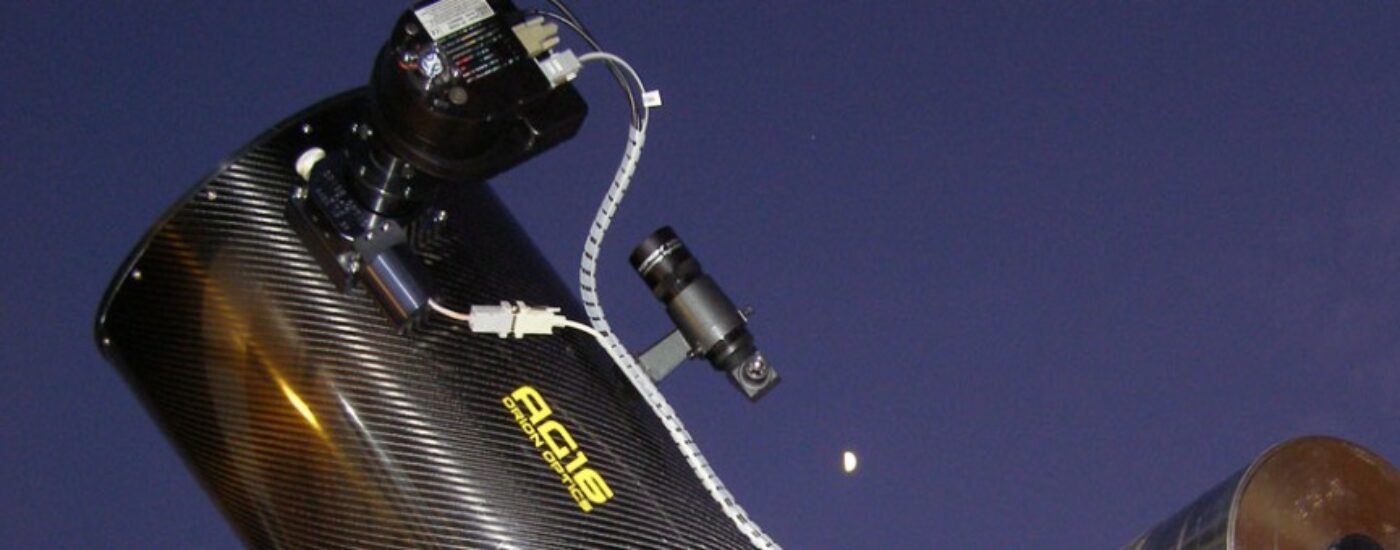again after the clouds cleared, was able to start observations of comets: 29P, C/2022 QE78 and C/2023 Q1. After these observations clouds were coming in and i closed the observatory
spectroscopic and comet observations on 11 april
cloud-free sky but low transparency and also almost full moon (lunar phase : 0.99). I could observe some comets like: 29P and C/2023 H5 after observations of these 2 comets, I have to leave the observatory due to incoming high clouds. With my second observatory, I could obtain spectra of Be-stars: gam Cas and 11 Cam.
comet observations on 8 april
with the repaired SBIG STL6303 camera I was able to perform a test tonight, unfortunately strongly interfering moon on the high cloud strings. I observed some comets: 29P – unfortunately images unusable due distrubing moonlight in combination with high clouds. comet C/2023 H5, these images were usable for further analysis. The ccd camera did its job flawlessly.
Technical issue on 6 april
When is was imaging i noticed a problem with the filterwheel of my SBIG STL6303 camera. while turning, the filter wheel suddenly jammed. After I disassembled and checked the filter wheel, at first glance there appeared to be no problem. After replacing it, it still worked unsteadily. Next day after further checking, cleaning and checking the motor and cleaning the motor shaft, it came back to life reliably.
comet observations on april 3
again a clear night but with a little disturbing moonlight (moonphase: 0.35). I was late at home an could capture 2 comets: 29P and 391P (not detected).
spectroscopic and comet observations on april 1
last week has been consistently clear weather, occasional high veil clouds. This evening clear skies and was able to observe a few comets : 29P, C/2022 QE78 and C/2025 D1. With the 2nd setup was able to obtain spectra in H-alpha area in high resolution of Be stars : Phi Leo and kappa Draconis (spectra are free available for use and can be downloaded from the BeSS-database.)
spectroscopic and comet observations on 29 march
comet and spectroscopic observations on 27 march 2025
it was a nice sunny day, towards evening high veil clouds appeared and disappeared late in the evening. However, it remained a low transparent sky. A few comets could be observed, with my 0.4-m f/3.8 newtonion telescope, including: 29P, C/2022 QE78, C/2023 H5 and C/2023 Q1, all images with photometric Bessel-R filter. With the 11″ Cassegrain telescope and LHiReSS III spectrograph I was able to capture spectra of PZ Gem ( 7 x 1200 sec exposure) in high resolution in H-alpha region. All my spectra could be seen and free downloaded in the BeSS-database after they are approved.
spectroscopic observation on 20 march
During this evening i could obtained a spectra in H-alpha region and high resolution of PZ Gem. (8 x 1200 sec exposure)
spectroscopic observations on 18 march 2025
During the evening with clear sky, i could obtain 2 spectra of Be-stars in High-resolution in H-alpha region. Be-stars that could be obtained are: QY Gem and gam Cas.
